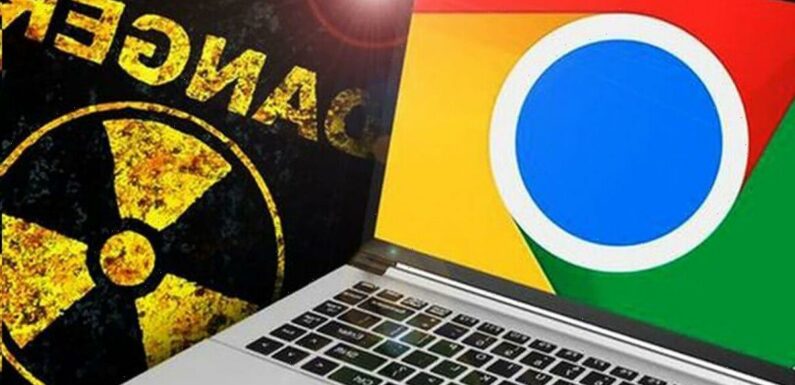

We use your sign-up to provide content in ways you’ve consented to and to improve our understanding of you. This may include adverts from us and 3rd parties based on our understanding. You can unsubscribe at any time. More info
There’s a fresh blow for millions of Windows users this week and it could mean many are finally forced to upgrade their PCs. Google has just announced that its latest version of Chrome (110) will not be available to anyone running older Windows 7 or Windows 8 operating systems which means these devices could now be much more vulnerable to bugs and cyber attacks.
As you might be aware, Chrome is regularly updated with new features and patches which often include so-called “zero-day” fixes.
These issues are incredibly serious with that rating meaning hackers are aware of the flaw and are actively exploiting it.
With Google no longer supporting Chrome updates on some versions of Windows it’s now vital users consider switching to something new.
Explaining more, Google said: “Chrome 109 is the last version of Chrome that will support Windows 7, Windows 8/8.1, Windows Server 2012, and Windows Server 2012 R2. Chrome 110 (tentatively scheduled for release on February 7th, 2023) is the first version of Chrome that requires Windows 10 or later. You’ll need to ensure your device is running Windows 10 or later to continue receiving future Chrome releases.”
If this issue wasn’t bad enough, there are more problems for Windows 7 and Windows 8 users as Windows 10 is no longer available to buy via Microsoft’s official store.
Microsoft introduces Windows 11 in 2021
That block was announced last week which means anyone wanting to switch software will now need to move straight to Windows 11.
That might sound easy but those with ageing laptops may find their devices aren’t compatible with this new Microsoft operating and that means one thing. Buying a new laptop!
It’s thought that millions of users across the world are still using older Windows versions and with big firms such as Google now ending support, it looks more and more necessary to head to shops and upgrade the hardware.
Google has confirmed that older versions of Chrome will still work but there will be no further updates released for users on these operating systems.
“If you are currently on Windows 7 and Windows 8/8.1, we encourage you to move to a supported Windows version to ensure you continue to receive the latest security updates and Chrome features,” Google said in its blog post.
Don’t forget, if you want to switch to Windows 11 you’ll need to make sure your PC is compatible and includes a fast enough processor and something called a TPM 2.0.
TPM stands for Trusted Platform Module and is a security feature built into hardware that you’ll only find on newer devices.
SYSTEM REQUIREMENTS FOR WINDOWS 11
• Processor: 1 gigahertz (GHz) or faster with two or more cores on a compatible 64-bit processor or system on a chip (SoC).
• RAM: 4 gigabytes (GB) or greater.
• Storage: 64 GB* or greater available storage is required to install Windows 11.
• Extra storage space might be required to download updates and enable specific features.
• Graphics card: Compatible with DirectX 12 or later, with a WDDM 2.0 driver.
• System firmware: UEFI, Secure Boot capable.
• TPM: Trusted Platform Module (TPM) version 2.0.
• Display: High definition (720p) display, 9″ or greater monitor, 8 bits per color channel.
• Internet connection: Internet connectivity is necessary to perform updates, and to download and use some features.
Source: Read Full Article